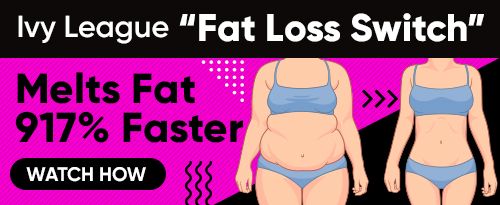Convenience often comes at a price, and nowhere is that more evident than in the rise of processed foods. These foods dominate grocery store shelves, marketed as quick, tasty, and affordable solutions for busy lives. But behind the brightly colored packaging and long shelf life, they come with consequences that reach far beyond what most people realize.
Highly processed foods—loaded with refined sugars, artificial additives, unhealthy fats, and preservatives—disrupt the body on multiple levels. From metabolic damage to brain chemistry imbalances, they set off a chain reaction that affects energy levels, digestion, hormone balance, mental well-being, and weight regulation. The impact isn’t always immediate, but over time, the damage accumulates, leading to chronic conditions that are difficult to reverse.
Understanding what processed foods do to the body makes it easier to make better choices, not through restriction, but through awareness. Here’s what’s really happening when processed foods take over the diet.
1. Blood Sugar Spikes, Energy Crashes, and Weight Gain
Refined carbohydrates and added sugars in processed foods rapidly enter the bloodstream, causing blood sugar levels to surge. In response, the body releases a flood of insulin to bring levels back down. But this rollercoaster effect leaves energy levels unstable—what starts as a quick boost turns into a hard crash, often followed by cravings for more sugar and refined carbs to bring energy back up.
Over time, this cycle exhausts the pancreas, reduces insulin sensitivity, and increases fat storage, leading to weight gain and a higher risk of type 2 diabetes. The body becomes resistant to insulin’s effects, making it harder to regulate blood sugar naturally.
Increased insulin levels also promote fat accumulation, particularly around the abdomen, making it more difficult to lose weight. This isn’t just about appearance—it affects overall metabolic health, contributing to inflammation, hormonal imbalances, and increased risk of chronic disease.
2. Sugar and Addictive Tendencies: The Dopamine Trap
Many processed foods are engineered to manipulate the brain’s reward system. The combination of refined sugars, salt, and unhealthy fats triggers an intense dopamine response, reinforcing cravings and making these foods harder to resist.
Over time, this artificial stimulation dulls the brain’s natural sensitivity to dopamine, meaning more processed food is needed to feel the same satisfaction. This rewiring of the brain’s reward system mirrors patterns seen in substance addiction.
Highly processed snacks, fast food, and sugary drinks create compulsive eating habits, making whole, nutrient-dense foods seem less appealing. This is why quitting processed foods often leads to withdrawal-like symptoms—headaches, irritability, and intense cravings.
3. Mental Health Implications: Mood Swings, Anxiety, and Depression
What you eat directly affects brain chemistry. Processed foods—particularly those high in refined sugars, artificial additives, and trans fats—contribute to mood swings, anxiety, and even depression.
Blood sugar instability leads to irritability, fatigue, and difficulty concentrating.
Inflammation in the brain, triggered by unhealthy fats and artificial chemicals, has been linked to depression and cognitive decline.
Gut health disruptions, caused by processed foods, impact serotonin production—about 90% of this “feel-good” neurotransmitter is made in the gut.
Studies show that people who consume high amounts of processed foods are more likely to experience symptoms of anxiety and depression. On the flip side, diets rich in whole foods—vegetables, healthy fats, and quality proteins—support mental clarity, emotional stability, and resilience to stress.
4. Inflammation and Chronic Disease Risk
Most processed foods contain industrial seed oils (like soybean, corn, and canola oil), which are high in omega-6 fatty acids. In excess, these oils trigger chronic inflammation, a silent driver behind diseases such as arthritis, heart disease, and autoimmune disorders.
Artificial preservatives, flavor enhancers, and food dyes further contribute to systemic inflammation. Studies show that many artificial additives alter gut bacteria, weaken immune function, and promote oxidative stress. Over time, this inflammation contributes to persistent joint pain, digestive issues, brain fog, and increased disease risk.
5. Gut Health Disruptions and Digestive Issues
A healthy gut is the foundation of overall health, influencing everything from digestion to mental clarity. Processed foods—especially those high in artificial sweeteners, refined grains, and preservatives—disrupt gut bacteria, weaken the gut lining, and promote bloating, gas, and sluggish digestion.
Emulsifiers and artificial stabilizers, commonly found in packaged foods, strip the gut of beneficial bacteria, creating an imbalance that can lead to irritable bowel syndrome (IBS), food sensitivities, and leaky gut syndrome. When the gut barrier weakens, toxins and undigested food particles enter the bloodstream, causing immune reactions that trigger allergies, skin conditions, and chronic inflammation.
6. Nutrient Deficiency and Increased Hunger
The body thrives on vitamins, minerals, and essential nutrients, but processed foods strip these elements away during manufacturing. Even if a food is “fortified,” synthetic vitamins lack the bioavailability of those found in real, whole foods.
Because processed foods lack true nourishment, the body remains in a constant state of hunger, signaling for more food in search of missing nutrients. This cycle leads to overeating, weight gain, and long-term metabolic damage.
Even if calorie intake is sufficient, the lack of essential nutrients leads to sluggish metabolism, weak immunity, brittle hair and nails, poor skin health, and low energy.
Breaking Free from Processed Food Dependence
The biggest challenge isn’t just avoiding processed foods—it’s undoing the damage they’ve caused. The body can heal, but it needs real, nutrient-dense foods to rebuild gut health, stabilize blood sugar, and restore hormone balance.
Prioritize whole, single-ingredient foods. Fresh meats, vegetables, fruits, nuts, and healthy fats supply the body with what it actually needs.
Swap out harmful oils. Use real butter, ghee, olive oil, or coconut oil instead of inflammatory seed oils.
Choose unprocessed protein sources. Grass-fed beef, pasture-raised eggs, and wild-caught fish provide complete amino acids without synthetic additives.
Rebuild gut health. Fermented foods like sauerkraut, kefir, and kimchi restore beneficial bacteria.
Cut hidden sugars. Read labels carefully—sugar hides in everything from “healthy” granola bars to salad dressings.
The transition away from processed foods can feel overwhelming, but small, consistent changes make a lasting impact. Even reducing processed food intake by half can significantly improve digestion, energy levels, and mental clarity.
The Long-Term Impact of What We Eat
Food choices shape more than just how we feel today—they determine long-term health, aging, and quality of life. Processed foods may offer convenience, but the cost isn’t measured in dollars alone. Every bite affects metabolism, brain function, gut health, and the ability to prevent disease.
Breaking free from processed food dependence isn’t about perfection—it’s about making intentional choices that support vitality. The body constantly regenerates, but it can only rebuild itself with the materials it’s given. Whole, nutrient-dense foods don’t just prevent disease; they fuel strength, energy, and resilience.
Each meal is an opportunity to either deplete or nourish the body. Choose the foods that support long-term health, and the body will respond with the energy, clarity, and vitality needed to thrive.





